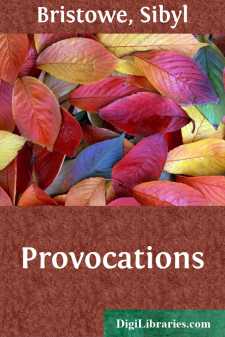Categories
- Antiques & Collectibles 13
- Architecture 36
- Art 48
- Bibles 22
- Biography & Autobiography 815
- Body, Mind & Spirit 144
- Business & Economics 28
- Children's Books 18
- Children's Fiction 14
- Computers 4
- Cooking 94
- Crafts & Hobbies 4
- Drama 346
- Education 58
- Family & Relationships 59
- Fiction 11834
- Games 19
- Gardening 17
- Health & Fitness 34
- History 1378
- House & Home 1
- Humor 147
- Juvenile Fiction 1873
- Juvenile Nonfiction 202
- Language Arts & Disciplines 89
- Law 16
- Literary Collections 686
- Literary Criticism 179
- Mathematics 13
- Medical 41
- Music 40
- Nature 179
- Non-Classifiable 1768
- Performing Arts 7
- Periodicals 1453
- Philosophy 65
- Photography 2
- Poetry 896
- Political Science 203
- Psychology 44
- Reference 154
- Religion 515
- Science 126
- Self-Help 85
- Social Science 82
- Sports & Recreation 34
- Study Aids 3
- Technology & Engineering 59
- Transportation 23
- Travel 463
- True Crime 29
Our website is made possible by displaying online advertisements to our visitors.
Please consider supporting us by disabling your ad blocker.
Provocations
by: Sibyl Bristowe
Description:
Excerpt
INTRODUCTION
The verses in this volume cover very many and various occasions; and are therefore the very contrary of what is commonly called occasional verse. The term is used with a meaning that is very mutable; or with a meaning that has been greatly distorted and degraded. Occasion should mean opportunity; and in the case of poetry it should rather mean provocation. And the trick of writing upon what are called public occasions, instead of upon what may truly be described as private provocations, has been responsible for much verse which is not only insufficient but insincere. It has produced not only many bad poems; but what is perhaps worse, many bad poems from many good poets. The sincerity of Miss Sibyl Bristowe's poetry is perhaps most clearly proved by the number of points at which it touches life; and the spontaneity, or even suddenness, with which they are touched. It is an occasional verse which arises out of real occasions, and not out of merely fictitious or even merely formal ones. Thus while the one or two poems on the great war are probably the best, they are by no means the biggest; they are not the most arresting in the sense of being the most ambitious. They are arresting because the great war really is great, and moves an imaginative spirit to great issues; it is public but it is very far from being official. The war, indeed, is necessarily more important as a private event even than as a public event. And the few but fine lines, on a brother fallen in a fight amid wild river that sundered man from man, is a model of the manner in which such mighty events take their place among the impressions of the more sincere and spontaneous type of talent. The topic takes its pre-eminence by intensity and not by space, or even in a sense by design. Indeed it is best expressed in a metaphor used by the writer herself about the topic itself; the metaphor of the colour red in its relation to other colours. Red rivets the eye, not by quantity but by quality; and in any picture or pattern a spot or streak of it will make itself the feature or the key. Miss Sibyl Bristowe's poem conceives the Creator confronted as with a broken spectrum or a gap in coloured glass; feeling the whole range of vision to be dim and impoverished and adding, by the authority of His own mysterious art, the dreadful colour of martyrdom.
Indeed the point of the comparison might very well be conveyed by the two poems about a London garden; that on the garden in peace being comparatively long, and that about the garden in war exceedingly short; short but sharply pathetic with its notion of peering and probing for the microscope flowers that must be a part of the most utilitarian vegetables. Indeed the short poems are certainly the most successful; and there is the same brevity in the last line of the poem about the tragic passage of time; "If lips of children had not told me so." The same general impression, as in the comparison already noted, is conveyed, for instance, in the fact that the poems about South Africa are private rather than public poems; are in that sense, if the phrase be properly comprehended, rather colonial than imperial....


